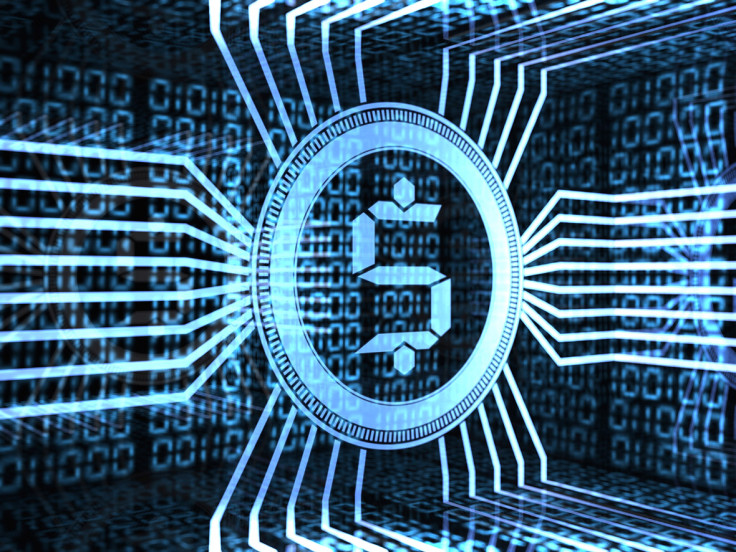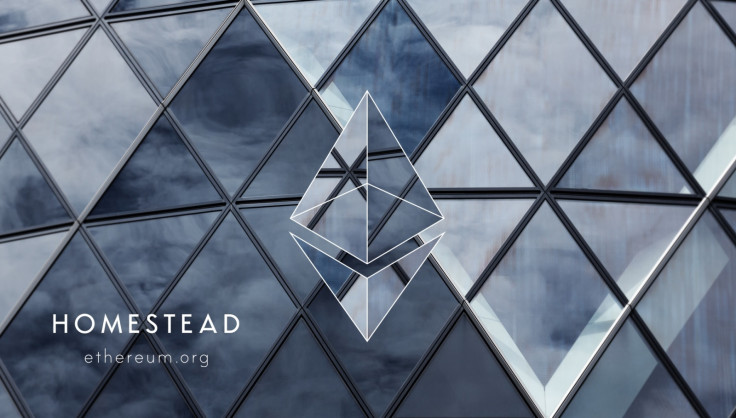Open blockchain WAVES targets manufacturing with 'Kickstarter on tokens'
IBTimes spoke to Sasha Ivanov during London Blockchain Week 2017.

WAVES, the permissionless blockchain platform, sees big potential from business and manufacturing for what it calls "Kickstarter on tokens". Any business can use the platform to issue tokens to crowdfund some venture, and thereafter a decentralised marketplace will naturally emerge where those tokens can be traded.
WAVES founder Sasha Ivanov, said: "Take for example a factory, or perhaps a startup that wants to create some gadget and has a prototype which they want to scale and actually manufacture. They can issue a voucher on blockchain to users. They don't have to go to VCs; they don't have to go to banks for loans. They go directly to users."
"When it's ready you can swap those tokens that are on the blockchain into the actual product, so it's like kickstarter. But the difference is you can also trade those tokens, so there is a decentralised market place that appears naturally on the blockchain.
"We are seeing a lot of interest; many real world businesses come to us and ask how they can we use this technology to raise money. Any business can go there and issue their tokens and they are tradeable inside the platform. This means you can always exit your investment. The next big thing will be a manufacturing platform – like Kickstarter on tokens."
WAVES raised some $16m in a crowdfunding, which was second only to Ethereum in size. It has chosen to focus on custom tokens at this stage – as opposed to smart contracts. Regarding the world of smart contracts, specifically Ethereum, Ivanov says this is something that will come later with WAVES.
"Ethereum is focusing on smart contracts but there are some issues. This has to be secure. You can have it [smart contracts] running on only some nodes but not on the whole platform - and we are working on that. If you have it running on all the nodes of the network then it puts a lot of pressure so you can't scale."
While WAVES will not have smart contracts right now, it will have no problem scaling. "You can issue tons of tokens and the miners don't have to store all the data and all the tokens; you can issue one million different assets or tokens but the miners have to store like 100 tokens that they really care about. If you want to track transactions in a certain asset if you just keep the history of this asset and you don't keep anything else."
The WAVES platform allows anyone to buy up its native tokens and begin proof of stake mining, which is repaid with transaction fees. Ivanov said that in his opinion simple proof of stake is as secure as proof of work at this stage. There are currently about 100m tokens in the network and 20m that are mining now. A decentralised exchange is also in the planning, he said.
"The exchange will be different because we offer centralised matching with decentralised order settlement. It means you can trade really fast but you don't have to send your tokens, your money, to a centralised party. You just keep your funds in your wallet. It's very fast and although it's centralised in a way, you don't have to trust any centralised party; it does matching but it has no control over your funds."

There are many blockchain platforms, protocols and D-apps in this busy space, and people are starting to talk about blockchain interoperability. Ivanov recalls participating with the SuperNET interoperability project a couple of years back. "It was like a project that promised to do this like a couple of years ago," he said, "but it more or less failed because people don't really want to create some kind of interoperable platform, perhaps because no one needs it at this stage.
"But you can do some protocol that does some kind of swaps between blockchains but they are going to be centralised. You would have to have some kind of escrow who keeps the funds until all those transfers between blockchains are settled.
"We heard from AntShares, some Chinese guys, they want to create something similar using Ripple's Interledger Protocol and create some interoperable blockchain ecosystem."
On the topic of tokens and the spate of ICOs happening on a weekly basis, Ivanov said this is such a new type of financial instrument that people are yet to fully grasp the potential. "It combines equity with visual product with voucher with some voting rights and it's very complicated. I can see rating agencies for ICOs so this kind of imitates the existing system with S&P system - but decentralised of course. There are so many white papers about this; at the moment it's not clear how to do this. It's futuristic and all has to be tested out very carefully," he said.
Regarding the very large amount of crowdfunding WAVES raised, Ivanov said they try to be a transparent as possible. "You can see where the funds go; most of them are in cold storage accounts so you can see them on the blockchain. We use like around $60 per month for development. So this can last us for many years."
© Copyright IBTimes 2025. All rights reserved.






















